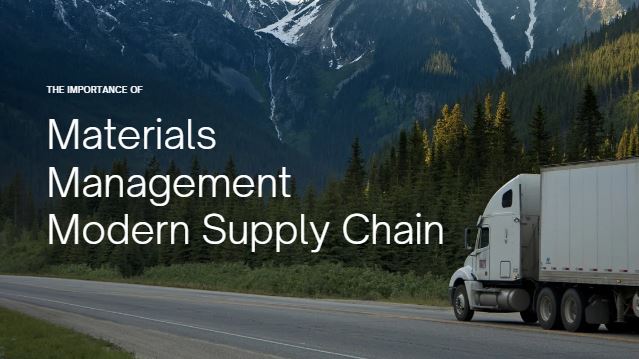
In the complex web of modern supply chains, materials management stands as a critical component that ensures the smooth flow of goods from raw materials to finished products.
Effective materials management not only reduces costs but also improves efficiency, reduces waste, and enhances customer satisfaction. This article delves into the significance of materials management, its key functions, and its impact on business operations.
Materials management involves systematic planning, sourcing, purchasing, moving, storing, and controlling of materials in a way that optimizes their use. It covers everything from the procurement of raw materials to the distribution of finished products. The goal is to ensure that the right materials are available at the right time, in the right quantity, and at the right cost.
The Key Functions of Materials Management
- Procurement: This is the process of acquiring the necessary materials and components from suppliers. Effective procurement ensures that materials are purchased at the best possible price without compromising on quality. It also involves maintaining good relationships with suppliers to ensure timely deliveries.
- Inventory Management: Proper inventory management balances the cost of holding inventory with the need to meet production schedules. It involves tracking inventory levels, managing stock replenishment, and ensuring that there is neither excess nor shortage of materials.
- Logistics and Transportation: Materials management includes the logistics of moving materials from suppliers to warehouses and from warehouses to production facilities. Efficient logistics ensure that materials are delivered on time, reducing delays and production downtime.
- Storage and Warehousing: This function involves storing materials in a way that maximizes space utilization while ensuring easy access. Proper warehousing techniques reduce the risk of damage and loss, thus protecting the company’s investment in materials.
- Quality Control: Ensuring that materials meet the required quality standards is crucial for maintaining the integrity of the final product. Quality control involves inspecting materials upon arrival and during storage to prevent the use of substandard materials in production.
- Material Handling: This refers to the movement, protection, storage, and control of materials throughout the supply chain. Effective material handling reduces the risk of damage, minimizes waste, and increases efficiency.
The Role of Technology in Materials Management
The integration of technology in materials management has transformed traditional processes, making them more efficient and reliable.
Technologies such as Enterprise Resource Planning (ERP) systems, Warehouse Management Systems (WMS), and Automated Guided Vehicles (AGVs) have streamlined operations, reduced human error, and provided real-time data for better decision-making.
For instance, ERP systems integrate various functions of materials management, providing a unified platform for procurement, inventory management, and logistics. This enables better coordination and communication across departments, leading to more efficient operations.
Impact of Effective Materials Management
- Cost Reduction: Efficient materials management helps minimize costs associated with procurement, storage, and transportation. Companies can save significant amounts of money by avoiding excess inventory and reducing waste.
- Improved Production Efficiency: With the right materials available at the right time, production processes can run smoothly without interruptions. This leads to higher productivity and better utilization of resources.
- Enhanced Customer Satisfaction: Timely delivery of high-quality products directly results from effective materials management. This not only meets customer expectations but also builds trust and loyalty.
- Sustainability: By reducing waste and optimizing resource use, materials management contributes to sustainability efforts. Companies can minimize their environmental footprint by managing materials more efficiently.
MITSDE’s PGDM in Materials Management
For professionals aspiring to lead in this critical field, the PGDM in Materials Management offered by MIT School of Distance Education provides an ideal opportunity to build in-depth expertise. The course covers key areas such as procurement, inventory control, logistics, and supply chain management, equipping learners with the knowledge and skills to manage materials effectively and efficiently.
The curriculum is designed with industry standards in mind, making graduates valuable assets to businesses seeking to streamline their supply chain operations and enhance cost efficiency. If you’re looking to upskill into materials management, this program offers a comprehensive foundation to excel in the domain.
In today’s competitive business environment, materials management is no longer just a back-end operation; it is a strategic function that directly impacts a company’s bottom line. By ensuring the efficient flow of materials throughout the supply chain, companies can reduce costs, improve productivity, and enhance customer satisfaction.
As technology continues to evolve, the role of materials management will only become more critical in driving business success.



